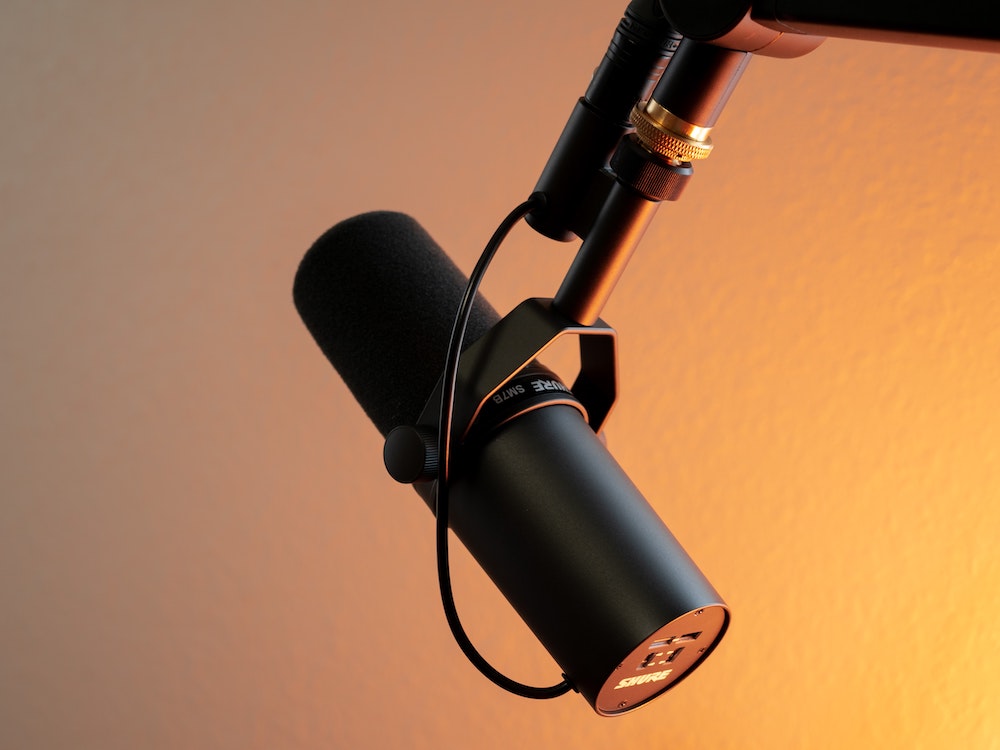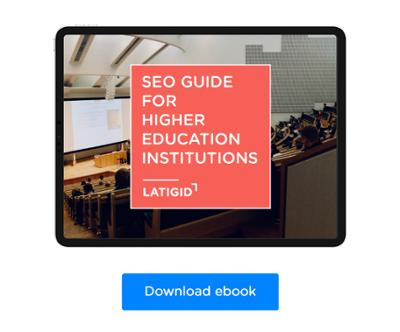
Podcasts have become a trend these last few years and nowadays not even Higher Education can escape this trend (and shouldn’t).
Besides being used for entertainment and/or educational purposes, podcasts have already proved to be an excellent marketing tool. Its format provides a great way to share knowledge and showcase expertise through conversation and interviews, while simultaneously developing a trusting relationship with listeners.
Throughout this article, we’ll go over the benefits that podcasts can have on Higher Education Institutions as well as different strategies for a successful podcast.
Benefits of podcasts to Higher Education Institutions
Podcasting is about building relationships. Without good content, your audience will not return. Without repeat consumers, a relationship will not develop. Without the relationship, there will be little (if any) money. But what is great content? Great content is content that moves you, that taps into your emotions, that makes you think, its content that either educates or entertains you, or does both. When done well, podcasts can be very beneficial to universities.
Here are some benefits:
- It will establish a university as an expert in their field. This will happen by developing an ongoing relationship with an audience by providing free valuable information.
- It will keep the institution’s name in front of prospective students and therefore increase awareness and enrollment.
- It is convenient and accessible to anyone with a smartphone or a computer and an internet connection, which allows any institution to reach a global audience.
- Through feedback, the university will learn more about its target audience. This will enhance the brand’s overall experience and gain potential students' trust.
- Offer the opportunity to engage with current and prospective students, covering topics like career development, study tips, work-life balance, among others.
- Increase traffic to the website by inserting website links on the podcast-sharing platforms.
- It gives an organization a place for in-depth reporting, which is becoming progressively hard to fund in other forms of media.
Strategy for Higher Education Institution’s Podcasts
When done right, podcasts are a phenomenal tool for developing long-term connections with prospective students, revealing the personalities within the university, and forming a bond of trust through storytelling and interviews. Despite this, many of the podcasts that will be created in the future will not be so meticulously designed, customer-oriented, and artfully crafted, due to the rush to capture the enthusiasm around this trend that is podcasting.
Even though with technology creating a podcast is now easier than ever, creating content that engages an audience is still very hard. People with exceptional narrative abilities are in charge of the podcasts that have gained so much acclaim. And coming up with new, thought-provoking content on a weekly or monthly basis is difficult. That is why so many podcasts and other forms of content are abandoned when not previously prepared. (Yes, even the ones done by companies)
To avoid this, before jumping into podcasting, your university needs to create a strategy first. Here are seven steps to follow before starting a podcast:
- Determine if your university really needs or can do a podcast. This means having a clearly defined concept before starting, not just a brainstorm of ideas. Your university also needs to ensure they have the time, resources, budget, and skills to do a podcast, and do it regularly.
- Set goals and metrics. Just as with any other type of content, the university needs to establish a strategy for the podcast. What is the aim? What is the audience? What role does it play in the overall brand? What criteria will be used to evaluate success?
- Assemble a team. Most corporate podcasts involve a team. It will be needed a producer, an editor, post-production mixing/editing, and marketing. The roles will vary according to the type of podcast wanted.
- Choose the right equipment and space. Make an investment in good microphones and headphones. Choose your recording program and hosting platform, as well as how you'll handle audio from call interviews.
- Plan your podcast. Define the length of the show, and how often it will come out. It is important that listeners know when to expect the podcast, so having a defined day and hour for episode releases is a must. Outline the episodes from topics to guests. Keep in mind that each show should relate to the brand objectives.
- Define the distribution channels. Everyone has their favorite platform to listen to podcasts, so to reach a larger audience your show needs to be available on multiple channels. Spotify, Apple iTunes, Google Play, Soundcloud, among others. There are free platforms like Anchor that distribute podcasts to all major listening apps.
- Market your podcast. Publish individual episodes with relevant hashtags on social media, link to them from relevant pages on your company's website and marketing emails, produce (and share) a supplemental blog post on the topic, share short clips on social media, and upload show transcripts, which helps with accessibility and search engine optimization.
These challenges should not deter universities from producing podcasts. With the proper team, resources, consistency, and motivation, podcasts can be a great method to tell your brand’s story and engage your audience.
If you need help building a digital marketing strategy for your Higher Education Institution, don’t hesitate, talk to us.
Download our SEO guide and learn how to build a strategy to optimize your Higher Education Institution's website




